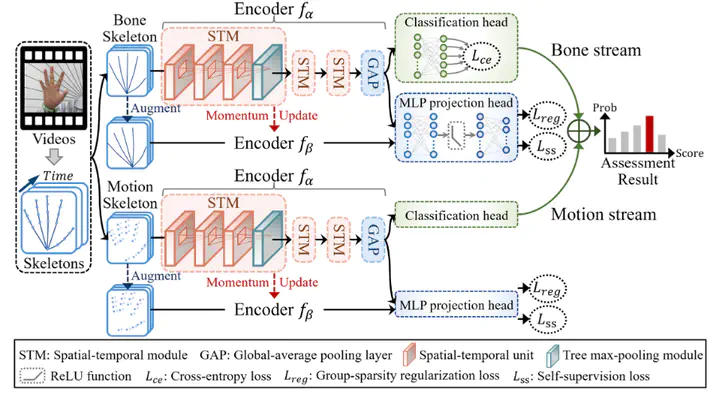Digital biomarkers for Parkinson's Disease

Context
Parkinson’s Disease (PD) is a progressive neurodegenerative disorder primarily characterized by motor symptoms such as tremors, bradykinesia, and postural instability. Accurate monitoring of these symptoms is crucial for effective treatment and management of the disease. This project aims to advance the development of digital biomarkers for the assessment of PD by leveraging video and wearable sensor data. An AI-driven system will be designed to automatically evaluate the severity and progression of PD over time. To achieve this, advanced deep learning and video processing techniques will be employed. These techniques will be used to identify and analyze discriminative spatio-temporal patterns in the data, which are indicative of the severity and progression of PD. This system holds particular promise for supporting the longitudinal monitoring of patients, especially in the context of telemedicine and remote clinical trials. Ultimately, this project aims to improve the quality of life for individuals with PD by providing a robust tool for continuous and accurate disease monitoring.
Image credit: Guo, R., Li, H., Zhang, C., & Qian, X. (2022). A tree-structure-guided graph convolutional network with contrastive learning for the assessment of parkinsonian hand movements. Medical Image Analysis, 81, 102560.
Objective
The objective of this project is to design a deep learning model that estimates the progression of Parkinson’s Disease (PD) by analyzing patient symptoms over time.
Skills required
- Good programming skills in python
- Experience in image and video processing
- Experience in machine learning and deep learning
- Optional: Experience in Pytorch